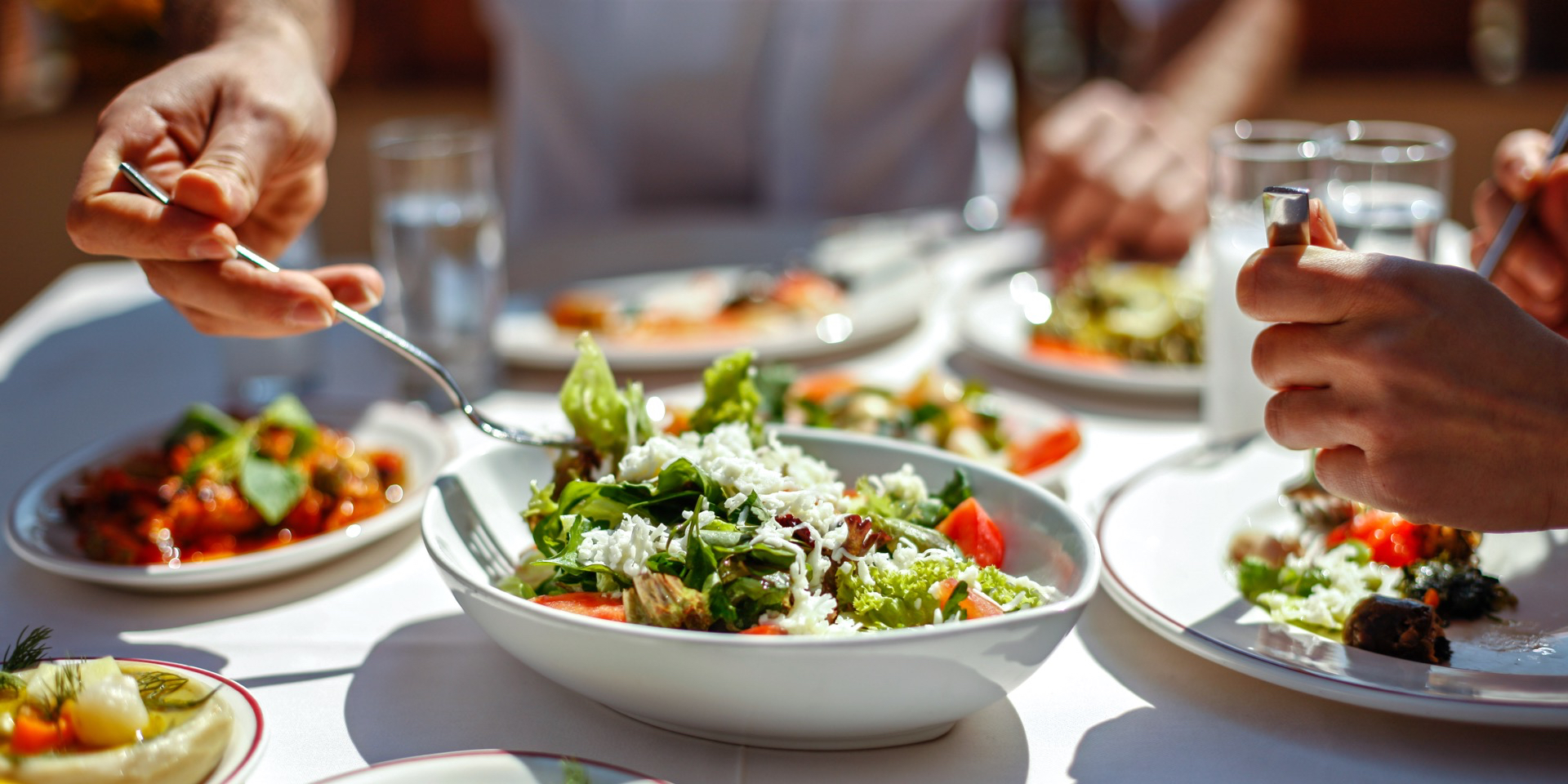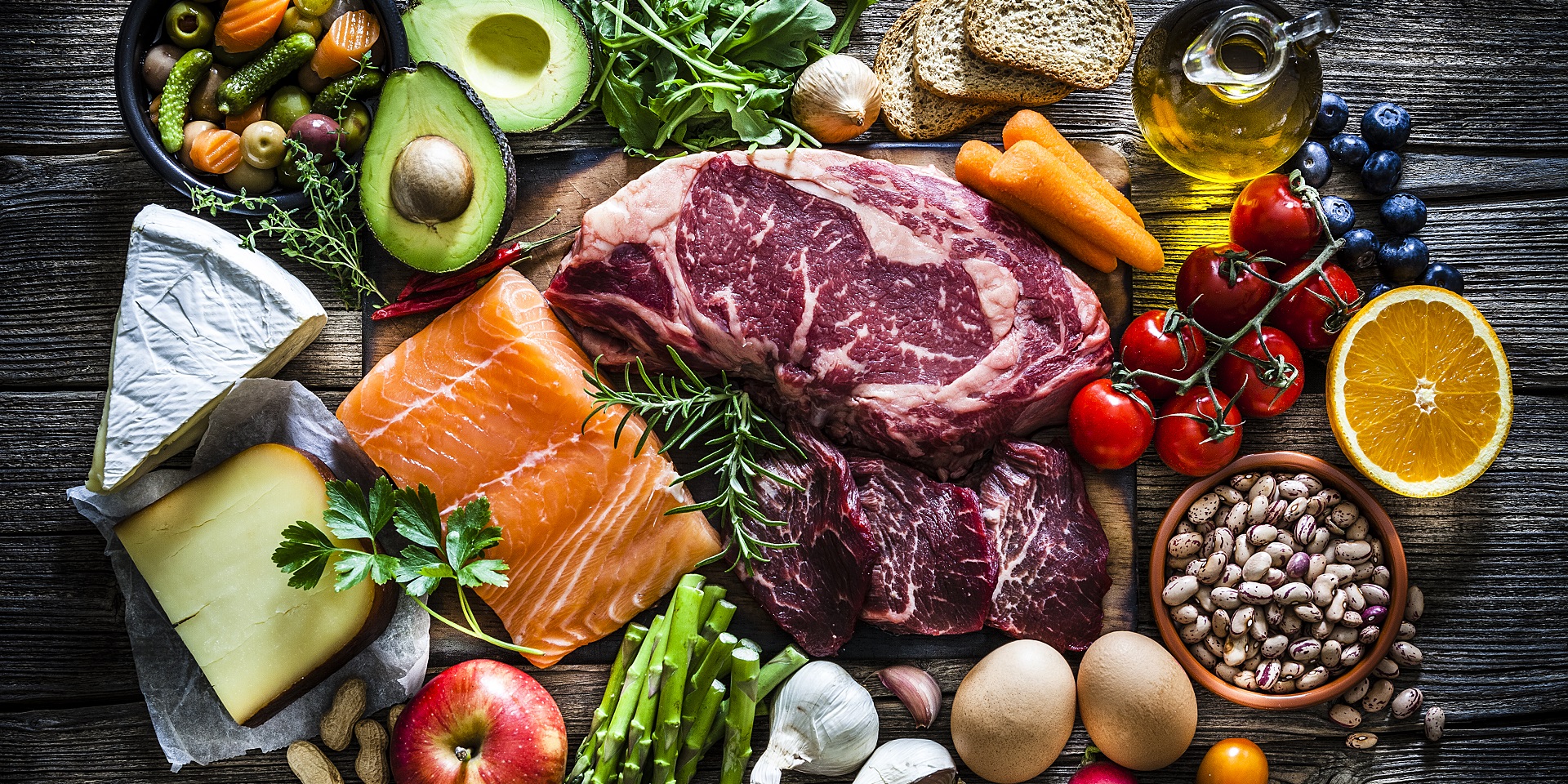Physical strength is often automatically associated with meat consumption, and the association seems logical: doesn’t the strength of the animal that has become food pass through digestion to the body that consumes it? This is the question we seek to answer in this article.
Mike, after two days of vegetarianism, says: “The absence of meat in my diet makes me hungry all the time. I would eat non-stop… and I crave pure cholesterol, meat, noble proteins. Last night I dreamt I was eating bacon…”
The above is not an isolated case. In a personal blog, the author reports the following: “I have a colleague who weighs 110 kilos and would like to lose a few, but he doesn’t. He can’t because he eats heavy food for lunch: sausages, stuffed cabbage rolls, meatballs, steak or anything meat-based. In the evening, it’s roast chicken, schnitzel or something else, and that’s in addition to pork soup and stew, which is also meat-based. I have talked to him and tried to explain to him (as best I can—I am not a dietician) that he is eating too much meat, that if he wants to lose weight, he should go on a diet of greens and vegetables and so on. He says: ‘If I don’t eat meat for dinner, I don’t feel full.’”[1]
Our daily meat
Many people are in a similar situation: addicted to meat—their entire diet revolves around it and they firmly believe that it is impossible to eat less meat, let alone give it up completely, otherwise they risk going hungry all the time. And since hunger is one of the body’s alarm signals designed to ensure its survival, it seems logical to give it your full attention.
If they eat vegetables and don’t feel full, some people think they’ll have to eat more often and bigger portions, so they risk gaining weight. Meat, on the other hand, is filling and rich in protein, which has fewer calories than carbohydrates and fats, so it seems the ideal food: low in calories and guaranteed to fill you up. However, for the overweight person mentioned at the beginning of this article, this reasoning doesn’t work.
Others eat a meat-based diet for reasons of efficiency: “I have no strength unless I eat meat.” Meat is often seen in society as the energy source par excellence, without which it is impossible to have average, let alone exceptional, physical performance. A senior editor of an online publication writes: “…there has never been a vegetarian high-performance athlete, for the simple reason that vegetables have an incomparably lower protein content than meat, and protein is the basis of our muscular system.” Physical strength is invariably associated with eating meat, and the association seems logical: doesn’t digestion transfer the strength of the animal to the body that eats it? Doesn’t the muscle in animal food become human muscle? Intuitively, it is easier to accept that the muscle in the food becomes muscle in the body of the consumer than that the leaf or seed becomes human muscle.
This may explain why men are less likely to be vegetarian than women. Surveys are generally consistent on this point, showing that women are more likely to live healthier lives by giving up red meat, and that about 70% of all vegetarians are women.[2] After all, physical strength is deemed more necessary in men than in women—not only are jobs where arm strength is required predominantly held by men, but bulging biceps are the perennial symbol of masculinity in just about every society. By giving up flesh for “leaves,” doesn’t a man risk losing not only his capacity for effort, but even his sexual identity?
Can you be a vegetarian and not suffer from hunger?
Can you feel full without meat? A group of Swedish researchers conducted a small experiment on 20 healthy, normal-weight women who were served a high-protein (43% energy; meat) or high-carbohydrate (69% energy; vegetarian) casserole. At the next meal, those who ate the meat-based meal consumed 12% fewer calories than those who ate the vegetarian meal.[3] This study has sometimes been used to prove that eating meat is more filling than eating vegetarian.
In reality, the study only showed that a high-protein meal was more filling than a high-carbohydrate meal. In a subsequent study using only vegetable (wheat) protein, subjects were given three standard lunches of 450 kcal each on three separate occasions. The first meal was high in vegetable protein (71.5% energy), the second was high in carbohydrates (99% energy), and the third was an equal mix of the two. At dinner, the women who ate the high-carbohydrate meal consumed 31% more calories and those who ate the mixed meal 20% more calories than those who ate the high-protein meal.[4] The satiety effect is therefore related to the protein content, and not to the nature (animal or vegetable) of the food.

A meat-based meal tends to be higher in protein and therefore more filling. But a well-balanced vegetarian meal will include enough protein, not just carbohydrates, so vegetarians do not generally experience hunger. Tens of thousands of people follow a vegetarian diet. Their hunger is no different to that of omnivores.
However, when changing from a predominantly meat-based diet to a vegetarian one, some people experience a more intense hunger (feeling hungry one hour after eating) during the transition period. This is because unlike meat, which stays in the stomach longer, plant foods (unless enriched with protein and fat) leave the stomach more quickly.[5] After a short time (a few weeks, sometimes a few months), the body adapts to the new diet.
There are few controlled studies comparing hunger in people on omnivorous diets with hunger in vegetarians. However, a study of 99 people with diabetes compared an omnivorous diet (recommended by the American Diabetes Association) with a low-fat vegan diet for 74 weeks (participants were randomly assigned to one of the two groups). In both groups, hunger was significantly reduced compared to the beginning of the study, and no significant difference in hunger was observed between the two diets (hunger scores were actually slightly lower in the vegan group, but the difference was virtually insignificant).
What about strength?
There is more than enough evidence to show that not only can you gain physical strength from a vegetarian diet, but that the physical strength of vegetarians is often superior to that of meat-eaters.
In a famous experiment conducted in 1907 to study the effect of meat consumption on physical strength and endurance, the well-known American economist and professor Irving Fisher compared three groups: meat-eating athletes, vegetarian athletes, and sedentary vegetarians. Which had the least physical endurance? The vegetarians? No, the meat-eating athletes, whose capacity for prolonged exercise was even lower than that of the sedentary vegetarians.
In 1968, a Danish study of a group of men compared the effect of three diets on physical endurance, measured by time spent cycling on a stationary bicycle. The average cycling time for a mixed diet (meat and vegetables) was 114 minutes; at a later date, the same subjects were given a meal rich in meat, milk, and eggs and tested again. The average cycling time was only 57 minutes. In a third phase, the subjects were given a strictly vegetarian meal (grains, vegetables, and fruit) and their average cycling time was 167 minutes.[6]
After reviewing several such experiments, John Robbins, an advocate of a vegetarian diet, concludes: “I know of many other studies in the medical literature that report similar findings. But I know of not a single one that has arrived at different results. As a result, I confess, it has gotten rather difficult for me to listen seriously to the meat industry proudly proclaiming ‘meat gives strength’ in the face of overwhelming evidence to the contrary.”
Not even athletes?
The list of high-performing vegetarian athletes is impressive and debunks the myth that performance is only possible on a meat-based diet. By citing a few examples, we are not claiming that performance is only possible on a vegetarian diet (not all vegetarian athletes are world champions), only that a vegetarian diet has been shown to be at least as successful as a meat-based diet.
In 1893, in an athletics competition that took place from Berlin to Vienna (almost 600 km), the first and second place finishers were vegetarians. The first finished in 155 hours and the second in 156 hours. The third place finisher, a meat-eater, finished 22 hours later. In the same era, before the end of the 19th century, in a 100 kilometre race, 11 of the first 14 finishers were vegetarians. In a similar 100 kilometre race, participants had to complete the race in 14 hours. Of the eight vegetarians who entered the race, six completed it in 14 hours, and two exceeded the 14 hours because they got lost and ran an extra 8 kilometres. In contrast, none of the meat-eaters managed to complete the race in 14 hours, and only one crossed the finish line.[7]
This kind of performance is not just the prerogative of the great athletes of the past. Dave Scott is a six-time winner of the Ironman Triathlon in Hawaii. He was a strict vegan during his six-race winning streak. Edwin Moses, Olympic gold medallist in the 400m hurdles in 1976 and 1984, who won 122 consecutive races and set four world records, was a vegetarian. The list of outstanding vegetarian athletes also includes tennis players Martina Navratilova and Billie Jean King, swimmer Murray Rose (multiple Olympic champion), basketball player Robert Parish, cyclist Lizzie Armitstead, bodybuilder Bill Pearl (four-time Mister Universe winner), wrestler Walter “Killer” Kowalski, Canadian ultra-marathon champion Brendan Brazier, ice skater Charlene Wong, and multiple world athletics champion Carl Lewis (who went vegan in 1990 without it affecting his athletic performance—on the contrary, he believes).
Robert Ancuceanu, PhD, is a University Professor at the Faculty of Pharmacy within the “Carol Davila“ University of Medicine and Pharmacy in Bucharest, Romania.



















